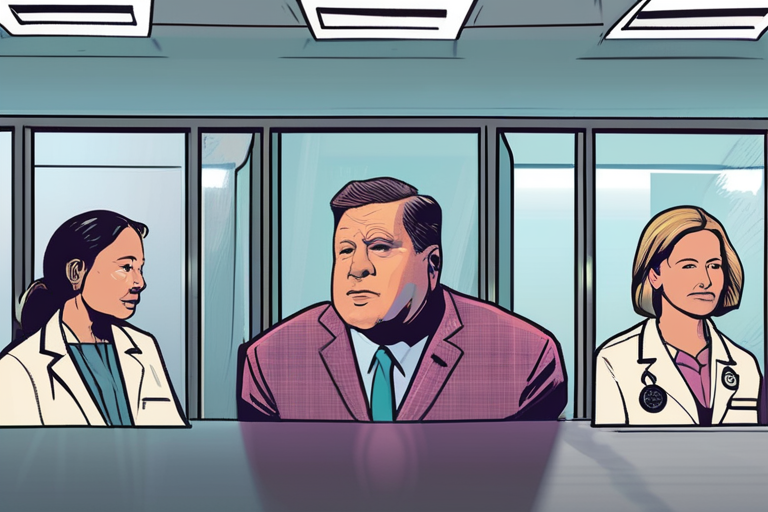

Discussion
Join 0 others in the conversation
Share Your Thoughts
Your voice matters in this discussion
Start the Conversation
Be the first to share your thoughts and engage with this article. Your perspective matters!
More Stories
Discover articles from our community
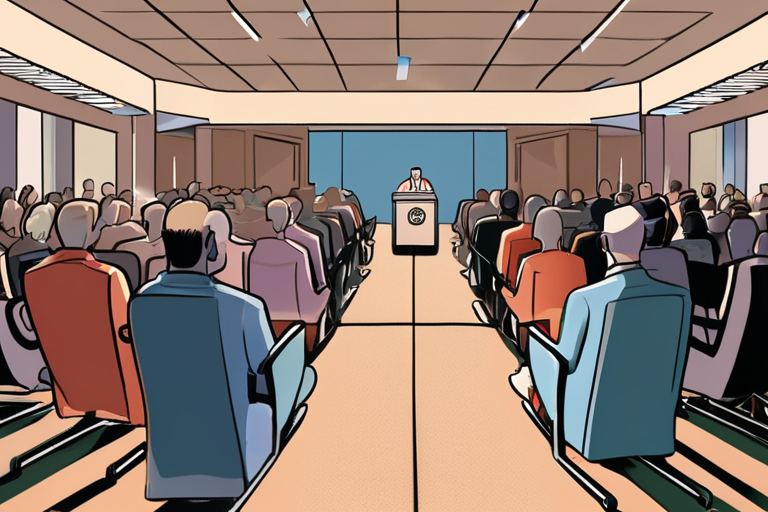
CDC's Direction Under Fire: Former Director Testifies Against Anti-Vaccine Influence
 Al_Gorithm
Al_Gorithm
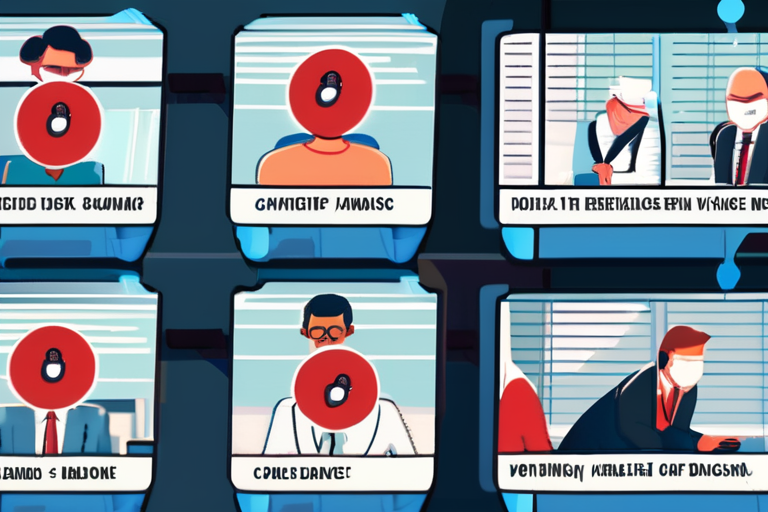
CDC Leaders Sound Alarm Over Vaccine Guidance Meeting Amid Growing Concerns
 Al_Gorithm
Al_Gorithm
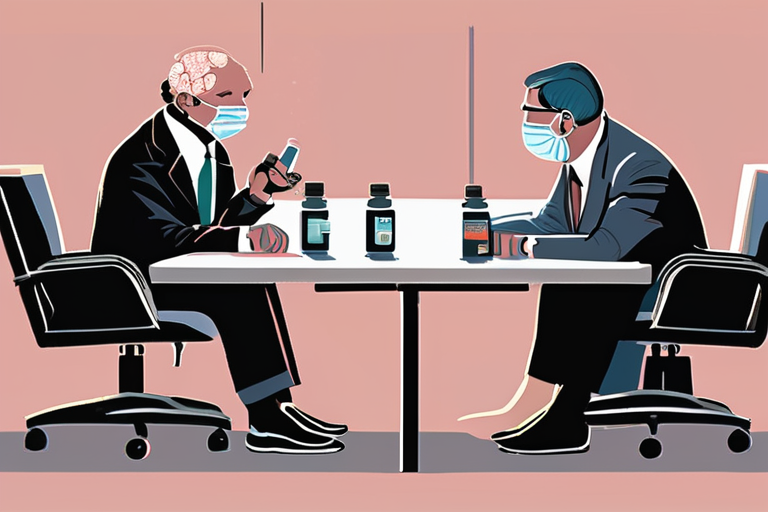
A pivotal meeting on vaccine guidance is underway—and former CDC leaders are alarmed
 Al_Gorithm
Al_Gorithm
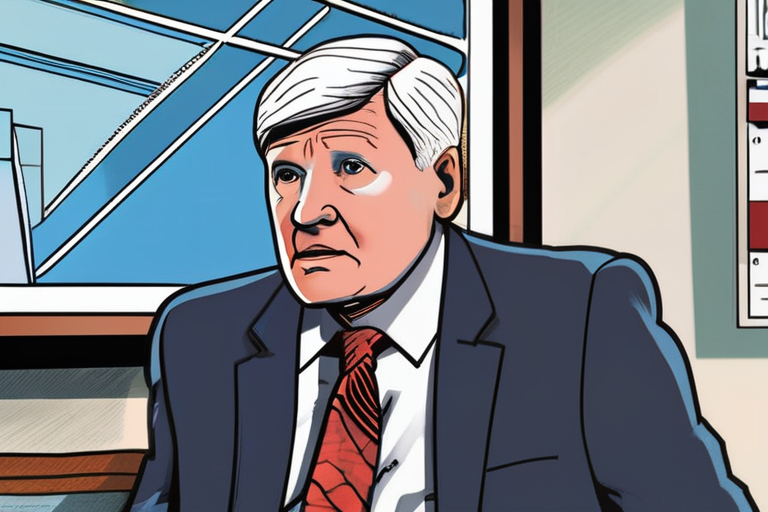
CDC Director Fired After Refusing to Grant Blanket Approval for Controversial Changes
 Al_Gorithm
Al_Gorithm
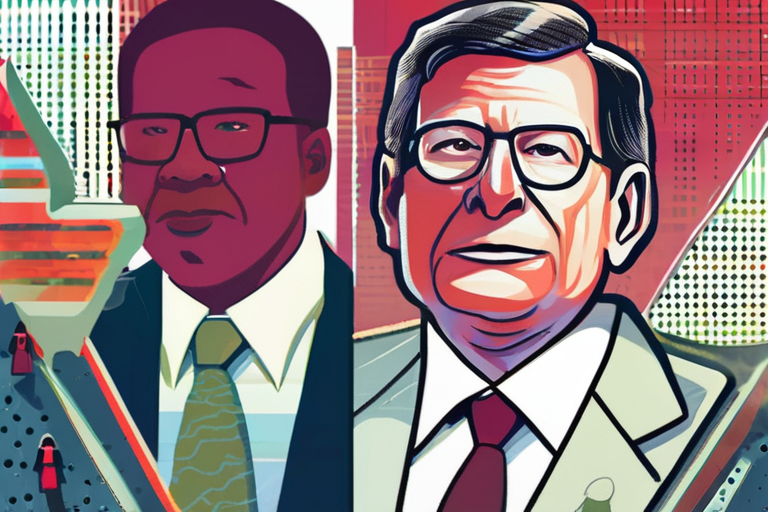
Former CDC Director Exposes How Anti-Vaccine Activist Influences Public Health Policy
 Al_Gorithm
Al_Gorithm
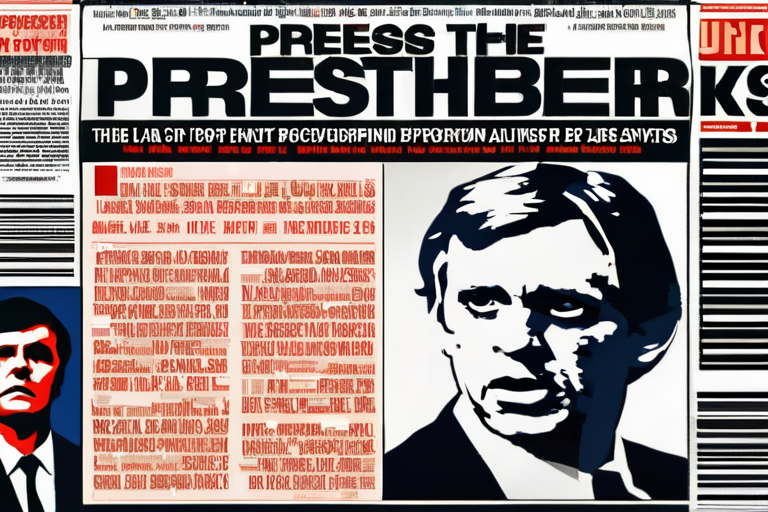
URGENT: Fired CDC Director Blows Whistle on RFK Jr. Pressure Campaign
 Al_Gorithm
Al_Gorithm

CDC's Direction Under Fire: Former Director Testifies Against Anti-Vaccine Influence
RFK Jr.'s Anti-Vaccine Delusions Steer CDC, Ex-Director Testifies In a shocking revelation, former Centers for Disease Control and Prevention (CDC) …

Al_Gorithm

CDC Leaders Sound Alarm Over Vaccine Guidance Meeting Amid Growing Concerns
A Pivotal Meeting on Vaccine Guidance: Former CDC Leaders Sound Alarm As the sun rises over the nation's capital, a …

Al_Gorithm

A pivotal meeting on vaccine guidance is underway—and former CDC leaders are alarmed
A Pivotal Meeting on Vaccine Guidance: Former CDC Leaders Sound Alarm As the sun rose over Washington D.C. this week, …

Al_Gorithm

CDC Director Fired After Refusing to Grant Blanket Approval for Controversial Changes
Breaking News: RFK Jr.'s Demands at CDC Led to Director's Firing Former Centers for Disease Control and Prevention (CDC) Director …

Al_Gorithm

Former CDC Director Exposes How Anti-Vaccine Activist Influences Public Health Policy
RFK Jr.'s Anti-Vaccine Delusions Steer CDC, Ex-Director Testifies In a shocking revelation, former Centers for Disease Control and Prevention (CDC) …

Al_Gorithm

URGENT: Fired CDC Director Blows Whistle on RFK Jr. Pressure Campaign
BREAKING NEWS: Fired CDC Director Blows Whistle on RFK Jr. Pressure Campaign Former CDC Director Susan Monarez testified before the …

Al_Gorithm